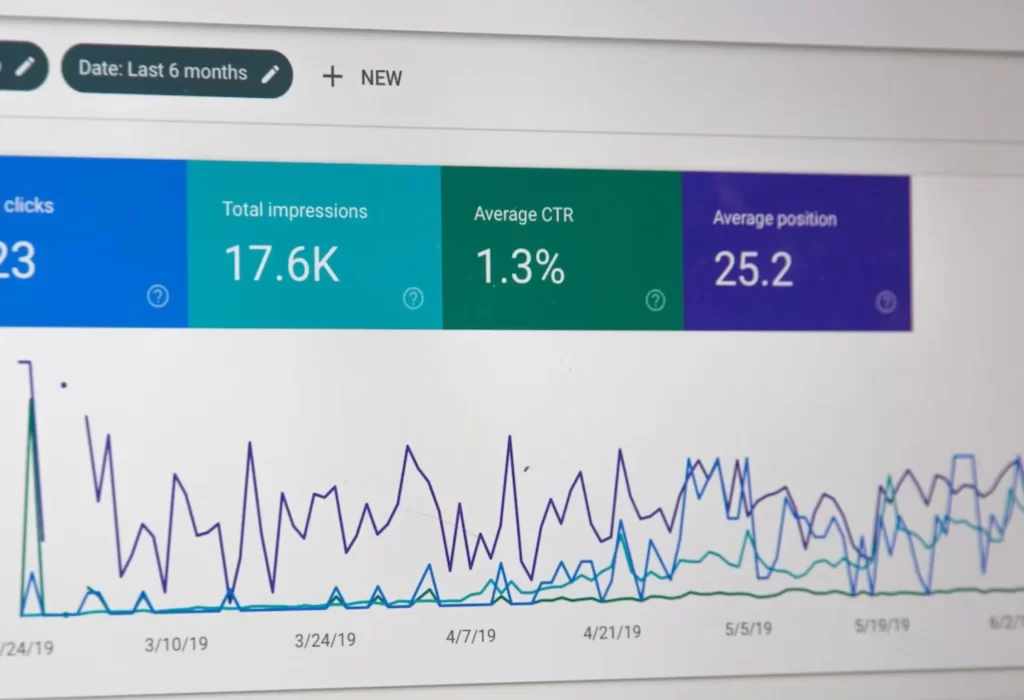
In the rapidly evolving landscape of business, digital marketing has emerged as a pivotal tool for driving success. Local companies, in particular, are recognizing the
Table Of Contents
Welcome to the Quick Beginners Guide to SEO! If you are new to the world of digital marketing, you've probably heard about SEO but might not fully understand its power and significance. In this comprehensive guide, we will walk you through the essential SEO basics, providing you with valuable insights and practical tips to get started.
With this article, you will develop a better understanding of organic search results and help people search for/come across your content from google and other search engines. Understanding rankings in the search results can be an overwhelming process, so in this article we would like to make sure you know the basics of SEO.
Before delving into SEO techniques, it's crucial to understand how search engines operate. Search engines like Google may use crawlers to scan the web and index the content of websites. When a user enters a search query, the search engine ranks the indexed pages based on various factors like relevance, authority, and user experience. Help search engines understand your content and how it answers queries by targeting keywords you want across various pages on your website.

Keyword research is the foundation of any successful SEO strategy. Utilizing the right keywords allows your content to rank higher in search results, reaching the right audience. Make use of keyword research tools to find relevant long-tail and short-tail keywords that align with your content. In this beginner's guide to SEO, it is important to understand that search engines also have categories of keywords.
On-page SEO focuses on optimizing individual web pages to improve their rankings and attract organic traffic. This involves crafting compelling page titles, meta descriptions, and using appropriate heading tags to structure your content effectively. Learn SEO content best practices depending on the industry you are involved in. The on-page part of SEO is the process of optimizing the front-end content of your website to help answer search engine questions.
Creating valuable and engaging content is the heart of SEO. Understand your target audience's needs and provide them with informative content. Strategic placement of keywords and maintaining readability are essential factors to consider. In the modern days of SEO, duplicate content can lower search volume and negatively affect your SEO performance. Avoid using duplicate content to rank well in search volume and competition searches.
Technical SEO deals with the website's infrastructure and performance. Ensure your website is fast, mobile-friendly, and free from technical errors. Implement proper URL canonicalization and redirects for better search engine visibility. Download our Free SEO Checklist today to help your website peak at the top of the search results!

Building high-quality backlinks from reputable websites enhances your site's authority and trustworthiness in the eyes of search engines. Focus on white-hat link-building techniques and avoid shady practices that could result in penalties. Site rank in search results depends on many factors, but to improve performing in Google Search, it is essential that you have strong backlinks to your content.
For local businesses, local SEO is a game-changer. Optimize your Google My Business profile, maintain NAP (Name, Address, Phone) consistency across directories, and encourage customer reviews to improve local visibility. In the overview of search engine optimization, Google tells search engines how far your business location is from the query. If you have a website that is new to SEO, search engines also look if you have a location or online listing such as Google My Business, BBB, or Bing Places.
E-commerce SEO comes with unique challenges. Optimize product pages with descriptive titles and unique content. Deal with issues like duplicate content and ensure a smooth user experience during the buying process.
Track the success of your SEO efforts using key performance indicators (KPIs) like organic traffic, bounce rate, and conversion rate. Google Analytics is a powerful tool for monitoring and analyzing your website's performance.
Utilize a variety of SEO tools to streamline your efforts and gain valuable insights. Stay updated with the latest trends, tips, and best practices by engaging in online forums and reading authoritative blogs.
Steer clear of SEO blunders like keyword stuffing, ignoring mobile optimization, and participating in link schemes. These unethical practices can harm your website's rankings and reputation.

SEO is a dynamic field, constantly evolving with search engine algorithm updates and technological advancements. Stay adaptable and commit to continuous learning to remain ahead in the SEO game.
As technology advances, AI and machine learning are expected to play a more significant role in shaping SEO strategies. Keeping an eye on emerging trends will help you prepare for the future.
Congratulations! You've now gained a solid understanding of SEO basics. Remember that SEO is a long-term process that requires dedication and patience. By implementing the techniques discussed in this guide, you'll be well on your way to improving your website's visibility and organic traffic.

SEO, or Search Engine Optimization, is the process of optimizing a website to improve its visibility on search engine result pages. It is crucial for websites because it helps them attract organic traffic, increase brand awareness, and reach their target audience effectively.
Search engines use crawlers to scan the web and index the content of websites. When a user enters a search query, the search engine ranks the indexed pages based on factors like relevance, authority, and user experience.
Long-tail keywords are longer and more specific phrases, while short-tail keywords are shorter and more generic. Long-tail keywords are valuable for targeting a specific audience, while short-tail keywords can attract broader search traffic.
Key performance indicators (KPIs) such as organic traffic, bounce rate, conversion rate, and keyword rankings can help you measure the success of your SEO efforts.
Yes, link building remains crucial for SEO. High-quality backlinks from reputable websites enhance your site's authority and trustworthiness, positively impacting your rankings. Backlinks are one of the most important aspects of SEO.

Welcome to the Ultimate Guide to SEO for Beginners! If you've ever wondered how some websites appear at the top of search engine results while others remain buried on page 10, you're about to discover the secrets of Search Engine Optimization (SEO). In this guide, we'll cover everything you need to know to get started with SEO and enhance your website's visibility on search engines.

SEO stands for Search Engine Optimization, and it's the practice of optimizing your website to rank higher in search engine results pages (SERPs). By strategically improving various elements of your site, you can increase organic (non-paid) traffic, attract more visitors, and reach your target audience effectively.
In the digital age, where billions of searches are performed daily, appearing on the first page of search results can make or break your online presence. The majority of users tend to click on one of the top search results, and if your website is not there, you could be missing out on valuable traffic and potential customers.
This guide is specifically designed for beginners who have little to no experience with SEO. Whether you're a small business owner, a blogger, or a website administrator, understanding the basics of SEO can help you improve your online visibility and drive organic traffic to your site.
Before diving into SEO strategies, it's essential to understand how search engines work and why they play a crucial role in the success of your website.
Search engines, like Bing, Yahoo, and Google also use complex algorithms to crawl and index billions of web pages. When a user enters a search query, the search engine quickly analyzes its index to provide the most relevant and authoritative results for that particular query.
Appearing on the first page of search results is vital because the higher your website ranks, the more likely users are to click on it. Higher rankings not only generate more traffic but also build trust and credibility among users.
Search engines have different keyword categories based on the types of information users are looking for. These categories can help search engines provide more accurate and relevant results. One common keyword category is informational keywords. These are words or phrases that users search for when they are seeking information or answers to questions. For example, someone may search for "how to cook pasta" or "what is the capital of France?" Another category is transactional keywords, which are used when users are looking to make a purchase or complete a specific action. For instance, someone may search for "buy Nike shoes" or "book a hotel in London." There are also navigational keywords, which are used to find a specific website or web page. These types of keywords are often the name of a company or brand, such as "Facebook" or "Amazon." By understanding these different keyword categories, search engines can better understand user intent and deliver more relevant results.
Keyword research is the foundation of any successful SEO campaign. It involves identifying the words and phrases Keyword research is an essential aspect of any successful SEO campaign. It entails the process of identifying the words and phrases that users frequently search for on search engines. By conducting thorough keyword research, businesses and website owners can understand the language and topics their target audience uses when looking for information. This knowledge is vital in optimizing website content and improving search engine rankings. Keyword research also enables businesses to discover valuable insights about their competitors and market trends. Through this process, marketers can identify keywords with high search volume and low competition, allowing them to develop targeted and effective SEO strategies. Ultimately, keyword research lays the foundation for an effective SEO campaign, providing the necessary insights to drive organic traffic to websites and increase online visibility.
Keyword research is an essential part of any SEO strategy. It involves finding the right keywords that your target audience uses to search for information online. This process helps you optimize your website's content and improve its visibility in search engine results. To conduct keyword research, start by brainstorming a list of potential keywords that are relevant to your business. Next, use keyword research tools like Google Keyword Planner or SEMrush to analyze the search volume and competition for each keyword. Look for keywords that have a high search volume and low competition as these are more likely to drive organic traffic to your website. Once you have identified your target keywords, incorporate them naturally into your website's content and meta tags. Remember to also track your keyword rankings and make adjustments as needed to stay competitive in search engine rankings. By performing thorough keyword research, you can attract more organic traffic and improve your website's search engine optimization.
SEO, or search engine optimization, strategy refers to the plan and techniques used to improve a website's visibility and ranking on search engine results pages. It involves analyzing and understanding how search engines work, what keywords and phrases people use to search for information, and then incorporating those keywords into the website's content. The goal of SEO strategy is to attract organic (non-paid) traffic to the website by optimizing its structure, content, and design. This involves various tactics such as on-page optimization, link building, and technical SEO. On-page optimization includes optimizing the website's metadata, title tags, headers, and keyword usage within the content. Link building involves obtaining quality backlinks from other websites, which helps establish credibility and authority in the eyes of search engines. Technical SEO focuses on optimizing elements such as website speed, mobile-friendliness, and site structure to ensure a smooth user experience and better search engine visibility. Overall, having an effective SEO strategy is crucial for any website looking to improve its online presence and attract targeted organic traffic.
Solving technical SEO issues is a crucial part of improving website performance and search engine rankings. These issues refer to any problems or obstacles that hinder search engines from properly crawling and indexing a website. One common technical issue is slow page load times, which can negatively impact user experience and lead to lower search rankings. This can be mitigated by optimizing images and minifying code to reduce file sizes. Another issue is broken links and redirect errors, which can result in a poor user experience and lost traffic. Correcting these errors involves conducting regular website audits and fixing any broken links or implementing proper redirect rules. Additionally, ensuring that the website is mobile-friendly is essential as search engines prioritize mobile-first indexing. This can be achieved by implementing a responsive design, optimizing the website for mobile users, and fixing any mobile-specific issues. Overall, solving technical SEO issues requires a combination of regular audits, optimization techniques, and staying updated with the latest best practices in order to maintain a high-performing website.
User experience (UX) plays a crucial role in on-page optimization. Effective UX design ensures that visitors have a positive and seamless experience on a website, which in turn can significantly impact its ranking on search engine result pages. A website that is user-friendly and visually appealing encourages visitors to stay longer, reduces bounce rates, and increases the chances of conversions. By optimizing the design elements and layout of a website, such as navigation, loading speed, and mobile responsiveness, the overall user experience can be enhanced. This improvement can contribute to better on-page optimization by providing search engines with positive signals, including reduced page abandonment and higher engagement rates. Moreover, an optimized user experience often leads to higher customer satisfaction, loyalty, and brand reputation, which can indirectly affect a website's organic search visibility. Therefore, investing in effective user experience is not only beneficial for the user but also for on-page optimization efforts.

Black hat SEO refers to the use of unethical techniques to improve a website's search engine rankings. This involves strategies that violate the guidelines and rules set by search engines like Google. Black hat SEO focuses on exploiting loopholes in search engine algorithms to gain quick and unnatural results. These techniques often involve keyword stuffing, hidden text, cloaking, and link farming. Keyword stuffing is the excessive use of keywords in a webpage's content to manipulate search rankings. Hidden text involves hiding text by blending it with the background color so that it is invisible to users but still readable by search engines. Cloaking refers to showing different content to search engine crawlers than what is shown to website visitors. Lastly, link farming involves acquiring a large number of low-quality and irrelevant backlinks to artificially boost a website's authority. While black hat SEO can yield short-term gains, it is highly discouraged as it can lead to penalties and even the banning of a website from search engine results.
White Hat SEO refers to ethical and legitimate strategies and techniques used to optimize websites for search engines. It focuses on enhancing a website's visibility and ranking by following search engine guidelines and providing value to users. White Hat SEO practices include keyword research, writing high-quality, unique content, optimizing meta tags and URLs, improving site speed and mobile responsiveness, and building natural backlinks. This approach aims to improve user experience and ensure that search engines can accurately understand and index website content. White Hat SEO is a long-term strategy that prioritizes sustainable growth and organic traffic. It adheres to search engine rules and avoids any manipulative techniques or shortcuts that may lead to penalties or blacklisting. Although it may take longer to see significant results, White Hat SEO ultimately establishes trust and credibility in the online space and builds a solid foundation for long-term success.
Google Search Console is a powerful tool that can help businesses plan their SEO strategy. By using this tool, businesses can gain valuable insights about their website's performance on Google's search results pages. One of the key features of Google Search Console is the ability to view the search queries that are driving traffic to the website. This information can help businesses identify keywords that are working well and optimize their content to rank higher for those keywords. Additionally, the tool provides data on the number of impressions and clicks for each keyword, giving businesses a better understanding of the keywords that are driving the most traffic. Another useful feature is the ability to monitor the crawl rate of the website and identify any crawl errors that may be affecting its performance. With these insights, businesses can make informed decisions about their SEO strategy, focusing on the keywords and content that are driving the most traffic and ensuring their website is optimized for search engines. In conclusion, Google Search Console is a valuable tool for businesses to plan and optimize their SEO strategy. Google uses Search Console to scan content that can answer a search engine's query. Google looks at your on-page and off-page SEO to see if your content is best to rank in the first few search results.
Track SEO metrics with Google Analytics is a crucial step for any website owner or marketer. Google Analytics provides valuable insights into how your website is performing in search engines and helps you identify areas for improvement. By tracking metrics such as organic traffic, keyword rankings, and user engagement, you can gain a better understanding of your website's search engine visibility and overall effectiveness. With Google Analytics, you can track the performance of specific keywords or landing pages, allowing you to adjust your SEO strategy accordingly. Additionally, it provides data on bounce rates, average time on site, and conversion rates that allow you to measure the success of your SEO efforts. By analyzing these metrics, you can identify which SEO tactics are working well and which ones need to be optimized. Overall, tracking SEO metrics with Google Analytics is essential for optimizing your website for search engines and driving more organic traffic to your site.
Search intent pages are a crucial element in helping Google find your site in its search results. When a user searches for something on Google, they have a specific intent or purpose behind that search. By creating content that aligns with users' search intent, your site has a greater chance of being found by Google. This can ultimately lead to more organic traffic and higher rankings in search results. Search intent pages are designed to address users' needs and provide them with the information they are looking for. These pages are optimized with relevant keywords and well-structured content, making it easier for Google to understand and index them. It's important to conduct thorough keyword research and understand the search intent behind those keywords in order to create effective search intent pages. By optimizing your site with search intent in mind, you can significantly improve your chances of being discovered by users in Google's search results.

When it comes to SEO, understanding how to work with SERP features is essential. SERP features are the additional elements that appear on a search engine results page (SERP) besides the traditional organic listings. These features include snippets, knowledge panels, featured snippets, local packs, and more. To effectively work with SERP features, start by identifying which features are most relevant to your target keywords. This can be done through keyword research and analyzing competitor's SERP results. Once you have identified the relevant features, optimize your content to rank for these features by providing concise and informative content. For example, if you want to appear in the featured snippets, structure your content in a way that directly answers commonly asked questions. Additionally, make sure to use schema markup to provide search engines with more context about your content. Regularly monitor the SERP results and adjust your strategy as needed to maintain and improve your presence in the SERP features. Overall, working with SERP features can greatly enhance your SEO efforts and help drive more traffic to your website.
Congratulations! You've now reached the end of the Ultimate Guide to SEO for Beginners. Armed with this knowledge, you're ready to embark on your SEO journey and take your website to new heights.
Remember, SEO is not a one-time task but an ongoing process. Stay informed about the latest trends and algorithm updates, keep optimizing your content, and focus on delivering the best user experience possible.
By implementing the strategies outlined in this guide, you can improve your website's visibility, attract more organic traffic, and ultimately achieve your online goals.
So, what are you waiting for? Start implementing these SEO basics, and watch your website soar to new heights in search engine rankings!

SEO is a gradual process, and the timeline for seeing results can vary depending on various factors...
While Google is the most popular search engine, SEO principles generally apply to other search engines...
For beginners, it's entirely possible to start with basic SEO strategies on your own...
Yes, search engines can penalize websites that engage in unethical SEO practices...
Frequent updates to your website's content can positively impact SEO...
How To Improve Your Website’s Loading Speed Through Design
Minimizing HTTP requests
Optimizing images
Compressing files
Reducing the use of external resources
Using content delivery networks (CDNs)
Leveraging browser caching
Using lazy loading
#WebDesign #DigitalMarketing #SEO #UserExperience #BrandIdentity #tonadesigns
May 19

The Do’s and Dont’s of Website Design for Small Businesses
When it comes to designing a website for a small business, there are certain do’s and don’ts that should be followed to ensure that the website is effective and meets the needs of the business. In this article, we will explore some of these do’s and don’ts to help small business owners create a website that is both functional and visually appealing.
#WebDesign #DigitalMarketing #SEO #UserExperience #BrandIdentity #tonadesigns
May 16

Motivational Quote For Your Hump Day!
“ If you want a thing done well, call on some busy person to do it. Busy people are generally the most painstaking and thorough in all they do ” - Napoleon Hill
#business #entrepreneur #businesstips #digitalmarketing #businessstrategy #success #motivation #grantcardone
Mar 1

8 Tips for Starting Your First Business!
Swipe to learn more →
Thank you for reading!
#business #entrepreneur #businesstips #digitalmarketing #businessstrategy #elonmusk #grantcardone #billionaire #patrickbetdavid #tonyrobbins #valuetainment #businesstips #smallbusiness #palmsprings #coachellavalley #tonadesigns #tonabusinessblog
Feb 28

11 Secrets for Growing Your Business Quickly
1. Hire The Right People
2. Focus on established revenue sources.
3. Reduce your risks.
4. Be adaptable
5. Focus on your customer experience.
6. Invest in yourself.
7. Always think ahead.
8. Prioritize Customer Service
9. Establish a social media presence
10. Attend networking events.
11. Research your competitors.
Thank you For Reading!
#businessgrowth #business #entrepreneur
Feb 1


In the rapidly evolving landscape of business, digital marketing has emerged as a pivotal tool for driving success. Local companies, in particular, are recognizing the

What are backlinks? How to Get Backlinks in SEO. Off-Page Backlink and Types of Backlinks Explained.
Understanding Backlinks: The Cornerstone of SEO Success In the ever-evolving landscape of digital marketing, the term “backlinks” has become nothing short of a buzzword. Yet,

What is ROI? Return on Investment Explained
In the world of business, understanding your investments’ returns is crucial. ROI, or Return on Investment, is a fundamental metric that helps businesses measure the

Web design is a captivating journey into the digital world that involves creativity, functionality, and innovation. If you’re new to the concept of web design,

WordPress has emerged as one of the most popular content management systems (CMS) and website-building platforms globally. It empowers both beginners and experienced users to

How Digital Marketing Can Scale Your Business. Grow With A Digital Marketing Agency
Introduction In today’s fast-paced and technology-driven world, digital marketing has become an indispensable tool for businesses seeking growth and scalability. By harnessing the power of
Take the First Step
Why not take the first step today and entrust Tona Designs with the creation of a professional and elegant website design for your business? Our experienced team is dedicated to crafting visually stunning and highly functional websites tailored to your specific business needs.
Website Design Frequently Asked Questions
Web design primarily revolves around the visual and experiential aspects of a website, ensuring it is user-friendly and visually appealing. On the other hand, web development takes place in the background, involving tasks such as software development, coding to establish the website’s structure, and resolving any issues or glitches. When it comes to creating a business website, most web designers are equipped to handle the necessary web development tasks as well.
The cost of our expert web design team is determined by the complexity of the project. Our pricing typically ranges between $60 and $80 per hour, taking into account the team’s experience and the scale of the website required. Based on these factors, clients can expect to invest between $1,000 and $5,000 for the creation of a new business website.
Website builders are convenient online platforms that allow you to develop websites without the need for coding knowledge or investing significant amounts in web designer fees. You’ll find specialized ecommerce website builders like Shopify, tailored for building online stores, as well as versatile builders like Wix, suitable for non-ecommerce websites. While our team possesses expertise in various development techniques, ranging from HTML/CSS to SquareSpace, our preferred choice is WordPress. We utilize premium plugins and implement custom CSS to ensure swift, efficient, easily customizable, and visually impressive websites.
The significance of web design lies in its potential to influence business performance. A website that is poorly designed and challenging to navigate can tarnish your brand’s image and potentially lead to a decline in sales. On the other hand, a professionally crafted and user-friendly website has the power to engage visitors, prolong their stay, and ultimately boost sales. With an estimated 2.14 billion individuals projected to engage in online purchasing in 2023, seizing this opportunity is imperative to avoid missing out on potential growth.
When seeking the ideal web design company for your business, it’s essential to begin by evaluating the specific type of website you require and determining the objectives you want your new site to accomplish. Additionally, take into account your budgetary constraints. Subsequently, conduct an online search for companies operating within your local area, and carefully assess customer testimonials and reviews to ascertain that your selected agency possesses a demonstrated history of success.
Visual Appeal: The visual design of a website should be aesthetically pleasing, using colors, typography, and imagery that align with the brand identity and target audience.
Responsive Design: Websites must be designed to be responsive, meaning they adapt and display correctly across various devices and screen sizes, including desktops, tablets, and smartphones.
Intuitive Navigation: Visitors should be able to easily navigate through the website and find the information they are looking for without confusion or frustration. Clear and organized menus, breadcrumbs, and search functionality contribute to intuitive navigation.
Fast Load Times: Slow-loading websites can significantly impact user experience and lead to high bounce rates. Optimizing images, minifying code, and leveraging caching techniques are some strategies to improve website speed.
Clear Call-to-Actions (CTAs): Effective web design includes prominent and well-designed CTAs to guide visitors towards desired actions, such as making a purchase, signing up for a newsletter, or contacting the business.
Consistent Branding: Maintaining consistent branding elements, such as logos, colors, and typography, throughout the website helps establish brand identity and recognition.
Accessibility: Web design should consider accessibility standards to ensure that people with disabilities can easily navigate and interact with the website using assistive technologies.
Optimized for SEO: Implementing proper SEO techniques, such as optimized page titles, meta descriptions, headings, and alt tags for images, improves search engine visibility and organic traffic.
Selecting the right color scheme for your website is crucial, as it can greatly impact the overall look and feel. Consider the following tips when choosing a color scheme:
Understand the Psychology of Colors: Colors evoke different emotions and have different meanings. For example, blue is often associated with trust and professionalism, while yellow is associated with energy and optimism. Consider your brand identity and target audience when selecting colors.
Create Contrast: Ensure there is enough contrast between text and background colors to enhance readability. High contrast also makes important elements, such as CTAs, stand out.
Stick to a Limited Color Palette: Using too many colors can create visual clutter. Choose a primary color and a few complementary colors that work well together and align with your brand.
Use Color Wheel Tools: Online color wheel tools can help you find complementary, analogous, or triadic color schemes. They provide harmonious combinations that are visually pleasing.
Consider Color Accessibility: Some color combinations may pose difficulties for color-blind users. Test your color
Absolutely! Once Tona Designs finishes developing your website, you’ll have full access to make any necessary changes yourself. Our team is committed to simplifying the process by utilizing a Content Management System (CMS), enabling effortless updates. We even provide custom tutorials to train your staff on managing the website. Furthermore, we offer Tona Hosting, a service where our dedicated staff regularly monitors your site and collaborates with your team to enhance your online presence. Rest assured, we are fully invested in optimizing your digital success!
In the majority of our website projects, you can anticipate a turnaround time of 4 to 7 weeks. However, the specific duration is subject to factors such as your feedback and the intricacy of the project. Rest assured, our team follows a well-established system that ensures consistent progress, enabling us to expedite the completion of your new website experience. We are committed to delivering your project promptly and efficiently!
Create a Result-Driven Online Experience For Your Business with Our Qualified Web Design Team
Tona Designs © 2024 All Rights Reserved
We have successfully received your form submission. Our team will reach out to you shortly with next steps. Feel free to browse our website in the meantime!